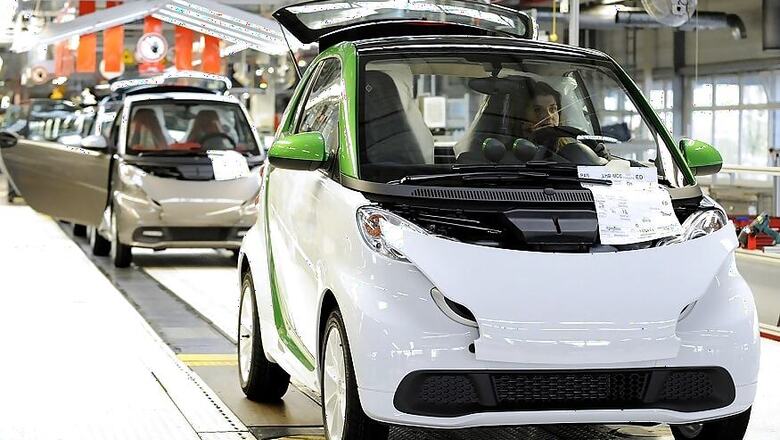
views
Eight of the world's biggest automotive companies have joined forces for an initiative that aims to address ethical, environmental and labor issues surrounding how they and where they source raw materials including cobalt and leather.
Called "Drive Sustainability," it was conceived five years ago as a working group by the European Business network for Corporate Social Responsibility (CSR Europe), but it can now count the BMW Group, (Mercedes-Benz parent company) Daimler, Ford, Honda, Jaguar Land Rover, Toyota Europe, the Volkswagen Group and Volvo as members.
Each of these companies has already made genuine inroads into bringing sustainability to their supply chains and reducing their environmental impact, but by working together it's hoped that the initiative will be able to start delivering genuine results -- starting with an industry-wide action plan to help bring transparency to the procurement process, particularly in relation to materials such as rubber, leather and cobalt (a metal that is critical to battery production) much more quickly.
"Sustainability is well established among the buying criteria of these companies, therefore it is now the time to strengthen the way they work together and establish a Partnership focused on results, based on stronger collaboration, excellence, leadership and impact," said Stefan Crets, Executive Director of CSR Europe.
One of the most effective ways for a company to reduce its supply chain's environmental impact is to reduce its dependency on it through greater recycling of materials. And while all companies involved in this initiative are testing new ways of simplifying the reclamation of steel, aluminum and plastics from their cars when scrapped, it's proving challenging.
It's why Ford recently made the news because it was studying gecko lizards in an attempt to create glues that are as easy to remove as they are strong in application. Though it sounded trivial, cars are now glued or bonded together rather than welded or riveted. It makes vehicles stronger and lighter but much more difficult to break down into recyclable materials when scrapped as the glue is so strong and resistant.
And while research on lizards could yield a way of improving the amount of reused steel, aluminum that re-enters the automotive supply chain in the future, this initiative could start to have an impact tomorrow.
"This is a perfect opportunity for an integrated approach amongst auto companies to come together and share a common platform for how we look at some of the very important aspects of sustainability, like working conditions and our collective environmental footprint," said Bob Holycross, vice president, Sustainability, Environment & Safety Engineering, Ford of Europe.
And now that the car companies have come together, the first step will be to deliver a clear action plan in early 2018 for the industry to follow.
Also Watch: Harley Davidson 1200 Custom Test Ride Review | Cars18




















Comments
0 comment